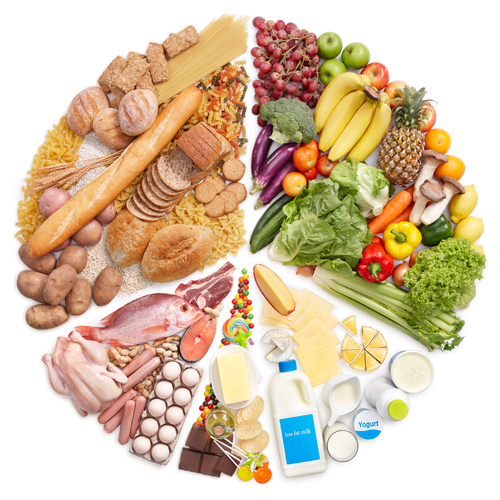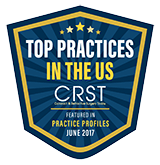Age-related macular degeneration is the leading cause of vision loss for those aged 55 and older in the United States, affecting more than 10 million Americans. Age-related macular degeneration is caused by the deterioration of the central portion of the retina, the inside back layer of the eye that records images and sends them via the optica nerve from the eye to brain. The retina’s central portion, known as the macula, is in charge of focusing central vision in the eye. It controls our ability to read, recognize faces and colors, drive a car, and see objects in fine detail.
As people get older, their chance for developing the eye disease increases. Since AMD has few symptoms in its early stages, it is important to have your eyes examined regularly.
Although there is no cure for age-related macular degeneration there are treatments available to maintain vision loss. There is also clear evidence that certain dietary choices can help slow vision loss. Here’s a list of foods to consider packing for lunch or making for dinner in the fight against age-related macular degeneration.

Fruits & Vegetables
Antioxidants are protective for AMD, therefore you should eat 5 – 9 servings of fruits and vegetables a day. While this may sound like a lot, a serving is really a half a cup of most foods or one cup of leafy greens.
Vegetables:
Fresh veggies – Baby carrots, cherry tomatoes, snap peas, and precut vegetables are quick and easy to snack on.
Add vegetables to sandwiches, wraps and salads – Chop up portions of broccoli, bell peppers and celery, and don’t forget to pile on the fresh mixed greens and spinach.
Frozen veggies – Try frozen vegetables you can steam in the package. These are great if you’ve got a microwave available in your office kitchen and are looking for a quick, health lunch.
Fruit:
Whole fruits – Bananas, apples, oranges, clementines, pears, grapes, nectarines and peaches are easy to grab and go for a healthy snack.
Canned fruit – Try individual serving cups or cans of mandarin oranges, peaches or fruit cocktails that are canned in juice, not syrup.
Whole Grains
Incorporate whole grains into your meals. Consider making the sandwich or lunch wrap on 100% whole wheat bread or a whole wheat wrap or pita. If you’re trying to cut back on carbohydrates in your diet, consider a low-carb version instead. You can also try quinoa or quick-cooking barley.
Proteins
Try incorporating some of these foods filled with protein into your lunch:
Canned tuna
Reduced-sodium canned beans
Hard boiled eggs
Unsalted nuts
Reduced-sodium lean deli meat such as turkey, chicken or roast beef
Dairy
Some dairy products to add to your diet:
Skim or 1% milk. Choose soymilk or almond milk if you are lactose intolerant.
Light yogurt or non-fat Greek yogurt. Choose plain varieties as those that are flavored usually have more carbohydrates.
Cottage cheese
Fish
Individuals who eat fish two to three times per week have a lower risk for AMD. Fish contains omega-3, which is a critical nutrient for healthy heart and eyes.
Some Extras for Flavor
Hummus
Hot sauce
Light salad dressing
Mustard
Salsa
Balsamic vinegar
Olive oil
Lime and lemon juice
It does take some planning, but bringing a homemade lunch and additional healthy snacks to work is an easy step towards a healthier lifestyle and better vision.



